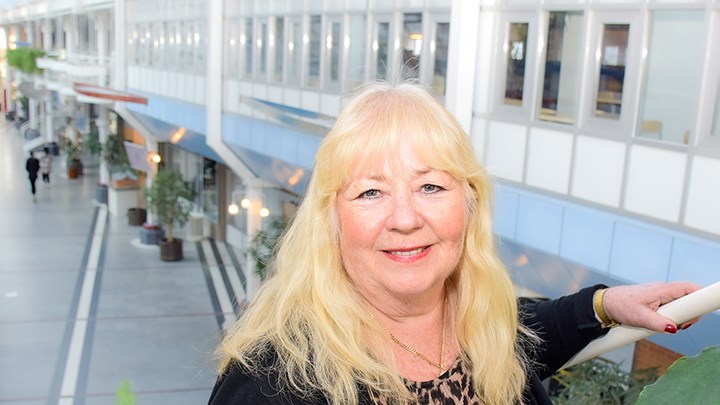Agneta Schröder – new professor 2025

Agneta Schröder är adjungerad professor i omvårdnadsvetenskap. Foto: Elin Abelson
Agneta Schröder is adjunct professor of nursing science.
“My ambition has always been for my research to contribute to an improvement of care for patients in psychiatric care. Working with something that I find rewarding and that can make a difference is important to me,” she says.
1957 Born in Örebro
2006 Obtained her PhD in caring sciences with her thesis Quality of Care in Psychiatric Setting: Perceptions of the Patient, Next of Kin and Care Staff, Linköping University
2009 Received the Eminent Scientist of the Year 2009 award in Mental Health and Psychiatry from The International Research Promotion Council (IRPC)
2016 Docent in medical science with a healthcare sciences specialisation, Örebro University
2016 Professor of clinical nursing, Norwegian University of Science and Technology (NTNU), Norway
2024 Adjunct professor of nursing science, Örebro University
Agneta Schröder has a background as a psychiatric nurse and nursing instructor. Her current research mainly focuses on three overlapping areas. One is quality of care in psychiatric care. The second is patients’ health-related quality of life, symptom burden, and recovery in psychiatric care. The third is the work environment for staff in psychiatric care.
After obtaining her nursing instructor diploma, Agneta Schröder worked as head of education at the Psychiatry and Habilitation Management Office at Region Örebro County. One of her responsibilities was quality management within psychiatric care.
“This sparked my interest as I discovered that there was limited research on quality of care. And above all, there were no instruments within psychiatric care to measure the quality of care from a patient perspective.”
Agneta Schröder began her research career at Linköping University where she, as a doctoral student, studied quality of care from the perspectives of the patient, staff and family members, and developed an instrument – Quality in Psychiatric Care, QPC – to measure the quality of care from a patient perspective.
The QPC instrument can be used for national and international comparison to identify areas for improvement – and measure the effects of action taken to raise the quality of care.
“A large part of my ongoing research involves developing and adapting the QPC instrument. There is great demand and the QPC instrument has so far been translated into 18 languages. In an international research project, we are collaborating with researchers from the Nordic countries, Indonesia, Taiwan, Brazil, and Spain, to name a few,” says Agneta Schröder, who conducts the research in collaboration with adjunct professor and research leader Lars-Olov Lundqvist from the University Healthcare Research Centre at Region Örebro County.
Staff’s working environment
In recent years, Agneta Schröder and her research colleagues have examined how the quality of care in round-the-clock and outpatient psychiatric care is linked to patients’ recovery, symptom burden, and perceived health-related quality of life.
“We also study the work environment for staff in psychiatric round-the-clock care focusing on quality of care, burnout, perceived stress, job satisfaction, threats and violence. A sustainable work environment for staff is a major challenge in health and medical care today.”
As a supervisor of doctoral students, she has been and is involved in several research areas, such as coercion in psychiatric care, elderly care, pre-hospital emergency care, students’ mental health, oncology, people with disabilities, and patient participation.
Looking forward to meeting students
Another track in Agneta Schröder’s research is to study, together with research colleagues, the effect and experience of the introduction of SPOT (Specialist Psychiatric Teams), from the perspectives of the patient, staff, and family members, but also from a health economics perspective.
“For me as an adjunct professor at Örebro University, it is important to help create a good study environment. I look forward to meeting students at different levels. I also see opportunities to create closer ties between the research conducted within Region Örebro County and the research conducted at Örebro University.”
